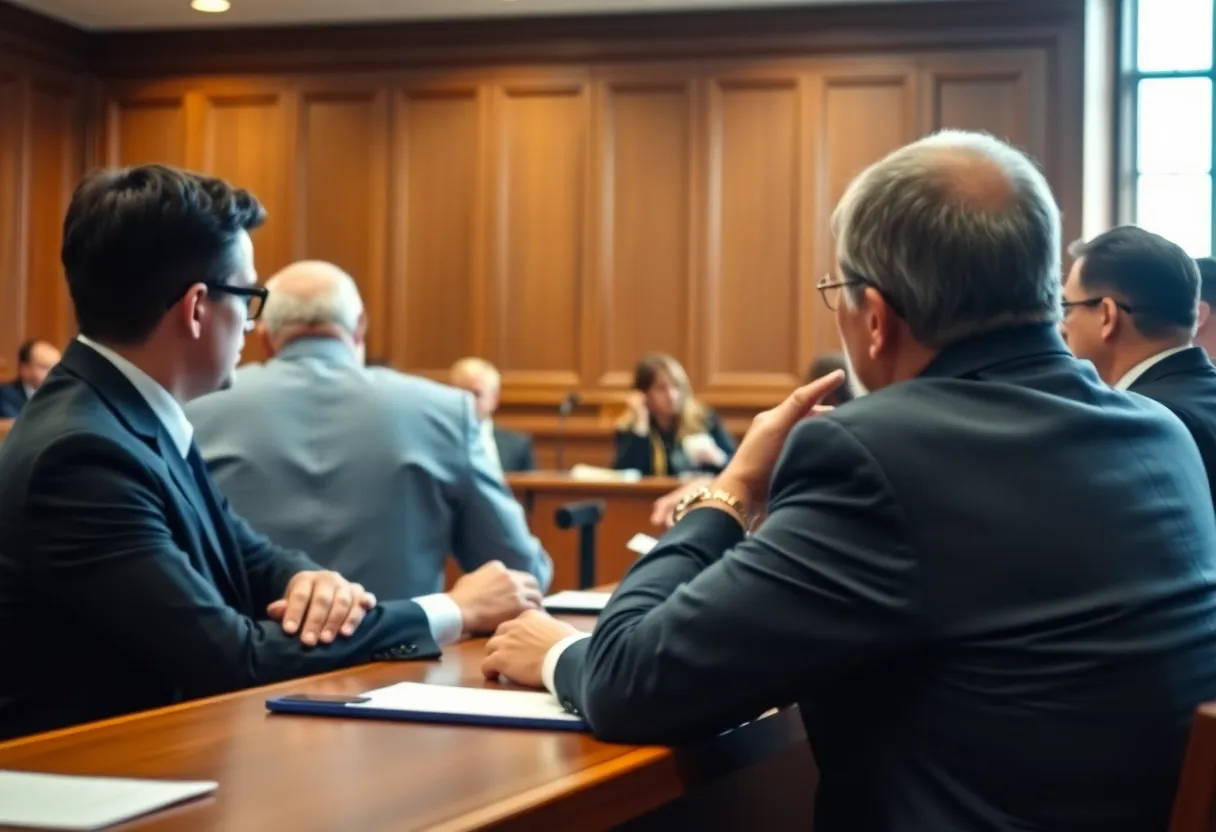Albuquerque, October 5, 2025
A mistrial has been declared in the high-profile rape case against Carlos Ramirez in Albuquerque due to juror misconduct. The trial, which lasted three weeks and centered around DNA evidence, will be retried next month. Despite the setback, prosecutors are determined to continue pursuing justice. The decision highlights the challenges of maintaining impartiality in lengthy trials, especially in sensitive cases like this one.
Mistrial Declared in Albuquerque Rape Case After Juror Misconduct
Albuquerque, NM – A mistrial was declared on Saturday in the high-profile rape case against local resident Carlos Ramirez, following the discovery of juror misconduct during deliberations. The second-degree felony trial, which spanned three weeks, relied heavily on DNA evidence to build the prosecution’s argument. Prosecutors have announced plans to retry the case next month, ensuring the legal process continues despite this setback.
The decision to declare a mistrial came after reports of improper juror behavior surfaced, prompting Judge Elena Ortiz to halt proceedings. Court officials noted that the misconduct compromised the integrity of the deliberations, though specific details about the nature of the infraction were not immediately disclosed. This development has drawn attention to the challenges of maintaining impartiality in lengthy trials, particularly those involving sensitive allegations like sexual assault.
The case centers on allegations against Ramirez, who was accused of rape in an incident that occurred last year. Throughout the trial, prosecutors presented DNA evidence as a cornerstone of their case, linking the defendant to the crime scene. Defense attorneys, however, argued that the evidence was circumstantial and open to interpretation. The jury had been deliberating for several days when the misconduct issue arose, forcing an abrupt end to the current proceedings.
Impact on Involved Parties
Victim advocates have voiced significant frustration over the mistrial, highlighting the emotional and psychological toll it places on survivors. The delay in achieving a resolution means additional time and resources for all parties involved, prolonging the uncertainty for the victim and their support network. Legal experts emphasize that such interruptions, while rare, are designed to protect the fairness of the judicial system, even if they cause short-term distress.
Prosecutors remain committed to pursuing the case vigorously in the upcoming retrial. They intend to refine their strategy, potentially addressing any procedural vulnerabilities exposed during the initial trial. The announcement of a retrial next month signals a swift return to court, aiming to minimize further delays. For Ramirez, the mistrial offers a temporary reprieve but does not dismiss the charges; he remains in custody pending the next phase.
Judicial Reasoning and Next Steps
Judge Ortiz determined that while there were insufficient grounds to dismiss the case entirely, procedural errors stemming from the juror misconduct necessitated the mistrial. Her ruling underscores the court’s priority on due process, ensuring that any verdict is based on unbiased deliberation. The judge’s decision was made swiftly to prevent further contamination of the jury process.
Following the mistrial, the court will need to empanel a new jury for the retrial. This process involves rigorous vetting to avoid similar issues, including questionnaires and individual interviews to assess potential biases. Legal observers note that the DNA evidence will likely play an even more central role in the retrial, given its prominence in the original arguments.
Broader Context of the Trial
The trial against Carlos Ramirez has been one of the more closely watched in Albuquerque this year, reflecting ongoing community discussions about sexual assault cases and the justice system’s response. Over the three weeks, witnesses provided testimony detailing the events leading to the charges, with forensic experts explaining the DNA analysis process. The case highlights the complexities of building a case on scientific evidence while navigating human elements like jury dynamics.
In recent years, mistrials due to juror misconduct have occurred in various high-stakes trials across the state, often involving issues like unauthorized research or discussions outside the courtroom. This incident serves as a reminder of the safeguards in place to uphold trial integrity, from jury instructions to monitoring during deliberations. For the local community, the outcome of the retrial will contribute to broader conversations on accountability and support for victims.
As preparations for the retrial begin, all eyes will be on how the prosecution adapts to the new circumstances. The emphasis on procedural fairness ensures that justice is pursued methodically, even amid complications. Updates on scheduling and any additional developments are expected from the court in the coming weeks.
This case continues to illustrate the delicate balance between evidence, procedure, and human factors in the legal system. While the mistrial delays resolution, it reaffirms the commitment to a fair trial for all parties involved.
FAQ
What happened in the Albuquerque rape case?
A mistrial was declared in the high-profile rape case against Albuquerque resident Carlos Ramirez after juror misconduct surfaced during deliberations.
How long did the trial last?
The second-degree felony trial lasted three weeks.
What evidence was central to the case?
The trial hinged on DNA evidence.
What are the plans after the mistrial?
Prosecutors plan to retry the case next month.
How have victim advocates responded?
Victim advocates expressed frustration, emphasizing the emotional toll.
What did the judge decide?
Judge Elena Ortiz cited insufficient grounds for dismissal but noted procedural errors.
Key Features Chart
| Feature | Description |
|---|---|
| Defendant | Carlos Ramirez, Albuquerque resident accused in rape case |
| Charge | Second-degree felony rape |
| Trial Duration | Three weeks |
| Key Evidence | DNA evidence |
| Reason for Mistrial | Juror misconduct during deliberations |
| Next Action | Retrial scheduled for next month |
| Judge’s Ruling | Insufficient grounds for dismissal; procedural errors noted |
| Advocates’ Reaction | Frustration over emotional toll on victims |


